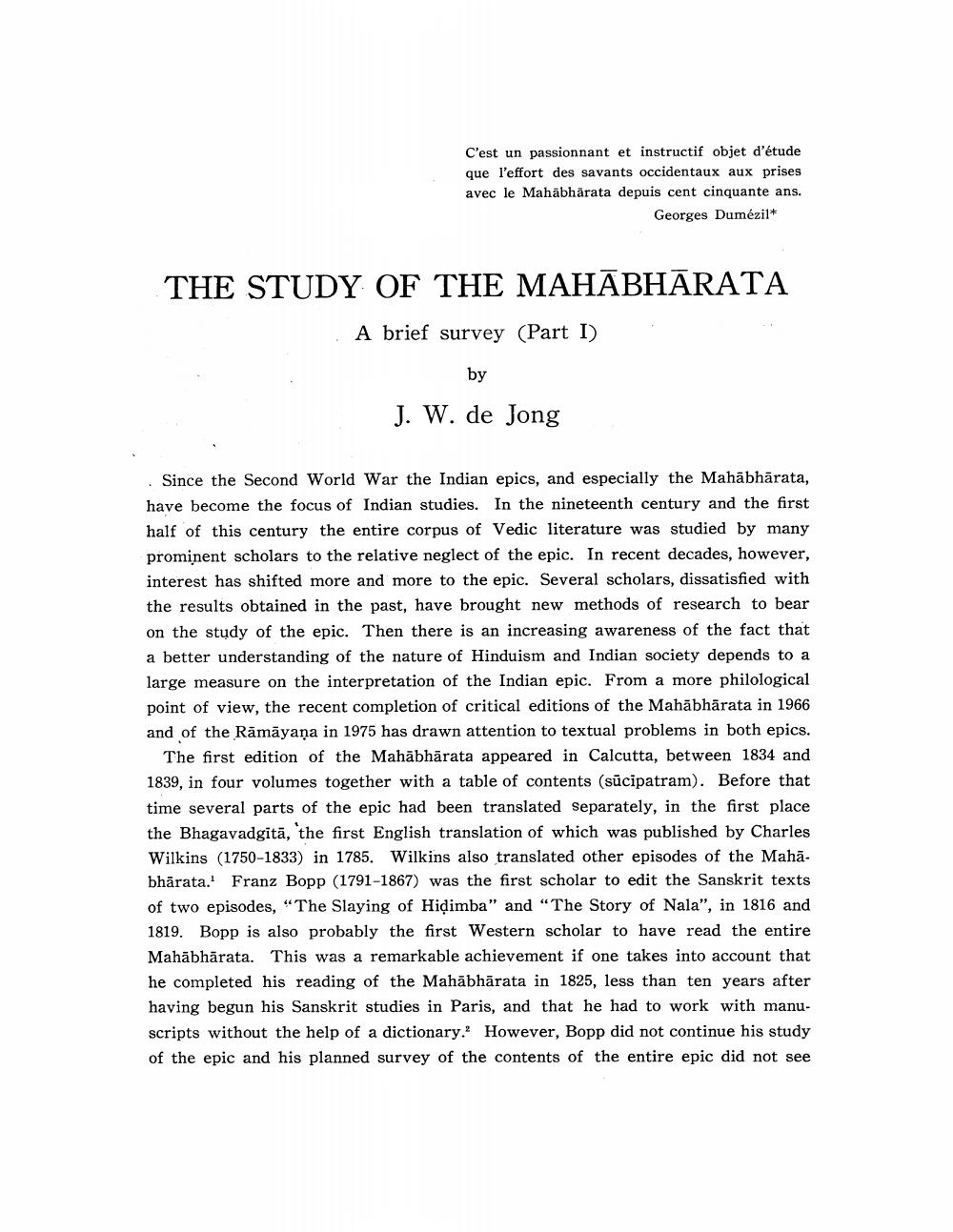Book Title: Study Of Mahabharata Author(s): J W De Jong Publisher: J W De Jong View full book textPage 1
________________ C'est un passionnant et instructif objet d'étude que l'effort des savants occidentaux aux prises avec le Mahabharata depuis cent cinquante ans. Georges Dumézil* THE STUDY OF THE MAHĀBHĀRATA A brief survey (Part I) by J. W. de Jong Since the Second World War the Indian epics, and especially the Mahābhārata, have become the focus of Indian studies. In the nineteenth century and the first half of this century the entire corpus of Vedic literature was studied by many prominent scholars to the relative neglect of the epic. In recent decades, however, interest has shifted more and more to the epic. Several scholars, dissatisfied with the results obtained in the past, have brought new methods of research to bear on the study of the epic. Then there is an increasing awareness of the fact that a better understanding of the nature of Hinduism and Indian society depends to a large measure on the interpretation of the Indian epic. From a more philological point of view, the recent completion of critical editions of the Mahābhārata in 1966 and of the Rāmāyaṇa in 1975 has drawn attention to textual problems in both epics. The first edition of the Mahābhārata appeared in Calcutta, between 1834 and 1839, in four volumes together with a table of contents (sūcipatram). Before that time several parts of the epic had been translated separately, in the first place the Bhagavadgitā, the first English translation of which was published by Charles Wilkins (1750-1833) in 1785. Wilkins also translated other episodes of the Mahā. bhārata. Franz Bopp (1791-1867) was the first scholar to edit the Sanskrit texts of two episodes, "The Slaying of Hidimba" and "The Story of Nala”, in 1816 and 1819. Bopp is also probably the first Western scholar to have read the entire Mahābhārata. This was a remarkable achievement if one takes into account that he completed his reading of the Mahābhārata in 1825, less than ten years after having begun his Sanskrit studies in Paris, and that he had to work with manuscripts without the help of a dictionary. However, Bopp did not continue his study of the epic and his planned survey of the contents of the entire epic did not seePage Navigation
1 2 3 4 5 6 7 8 9 10 11 12 ... 19
